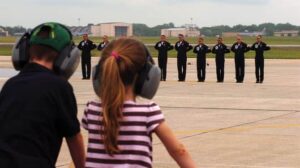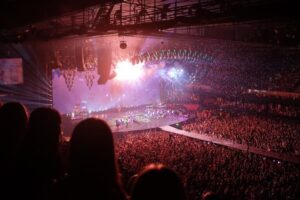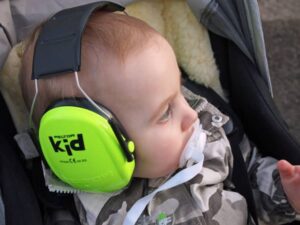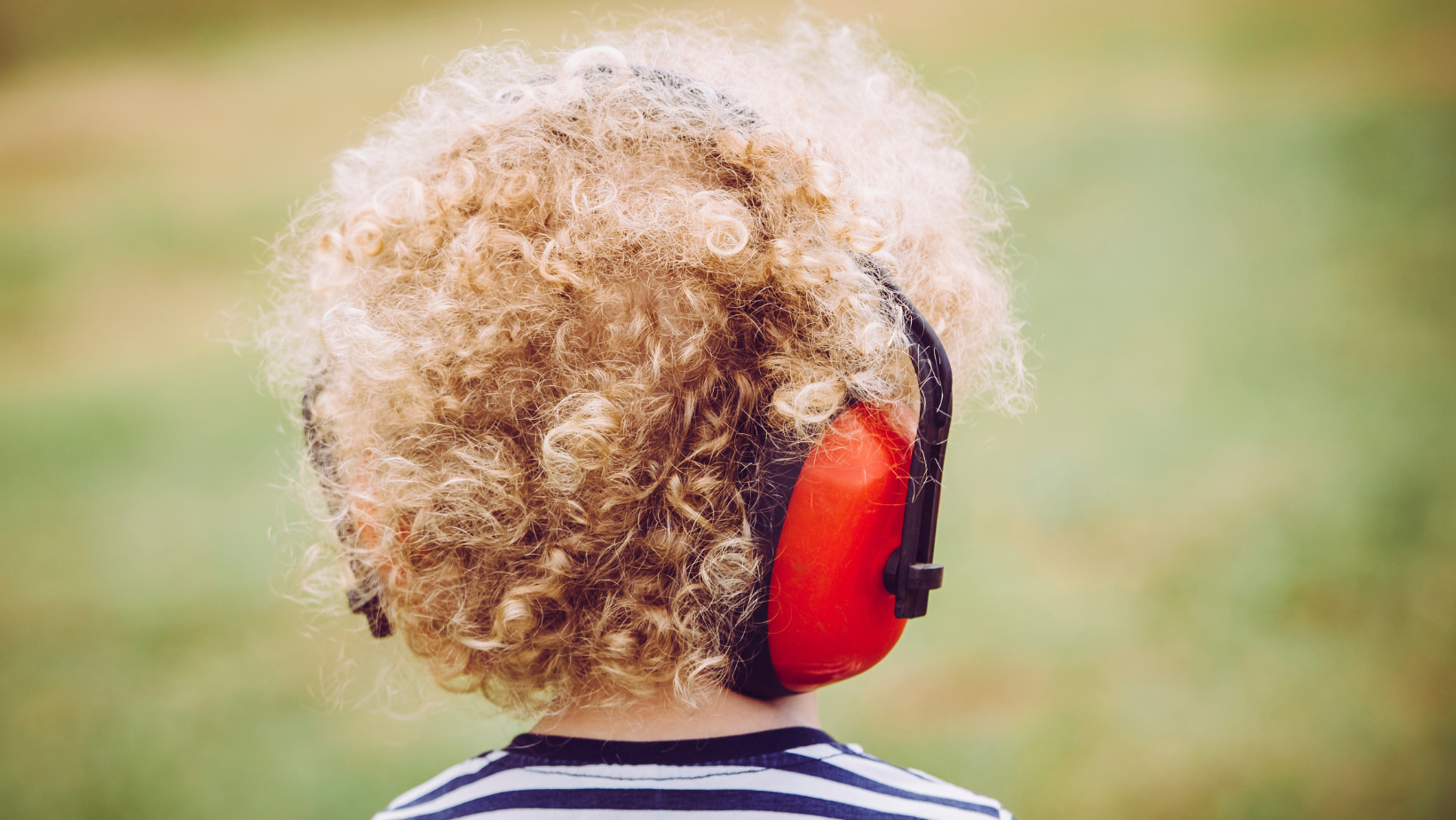You’re planning to take the family to an outdoor event where there’s going to be a lot of noise, like music or late-night fireworks. And suddenly you’re wondering if the noise will be too much for baby?
In this article, Marie shares her scientific research with us. She has also benefited from the invaluable help of Andréa, an audiologist, to draw out the essentials to pass on to you.
First, excessive noise can have an impact on hearing over the long-term, whether for adults, children or babies if repeatedly exposed to excessively high decibels. The notion of sound is relative to each person and depends on their age. Something that is too loud for you may not be for someone sitting beside you.
Decibels are the way we measure the intensity of sound. Some sounds will surprise your baby and make them jump, interest them or make them cry.
 A baby’s central neurological system for hearing starts developing during its life in the uterus and continues after birth. It will reach maturity around 12. For this reason, and to promote learning, you need to expose the baby to sounds found in everyday life. Even very small, they can make the difference between day and night based on auditive stimulation. If you over-protect your baby by limiting sound, they may become intolerant to changes in intensity and strongly react to sounds, even those considered normal. Everything depends on the dosage and balance in the sounds. Too much noise, extensive exposure or sounds that are too loud will tire out a baby and have consequences on their hearing over the short- and long-term.
A baby’s central neurological system for hearing starts developing during its life in the uterus and continues after birth. It will reach maturity around 12. For this reason, and to promote learning, you need to expose the baby to sounds found in everyday life. Even very small, they can make the difference between day and night based on auditive stimulation. If you over-protect your baby by limiting sound, they may become intolerant to changes in intensity and strongly react to sounds, even those considered normal. Everything depends on the dosage and balance in the sounds. Too much noise, extensive exposure or sounds that are too loud will tire out a baby and have consequences on their hearing over the short- and long-term.
What is Excessive Noise?
If we take the decibel level that is acceptable for the ear:
- Whispering is 20-40 decibels
- A regular conversation is 50-60 decibels
- A visit to the supermarket is 80 decibels
- A night club starts at 110 decibels
 Some sounds can reach above 120-130 decibels (aircraft, rock concerts), which is very high for someone’s auditory acuity. Imagine for a baby!
Some sounds can reach above 120-130 decibels (aircraft, rock concerts), which is very high for someone’s auditory acuity. Imagine for a baby!
For a baby, sounds below 70 decibels are perfect. If they are exposed to sounds around 80 decibels or higher repeatedly, it can affect their hearing.
Buzzing in the ear, whistling or high sensitivity to sounds can follow. That doesn’t mean you can’t take your baby out with you to a place where there is noise, but you have to pay attention to the sound intensity and the length of exposure. If the intensity seems too high for you, you should cover your baby’s ears with protective ear protection.
Auditive protection in a situation with excessive noise is essential, but you should also distance yourself from the source from time to time. Noise can damage hearing, but it is also stressful for the body and can lead to general fatigue.
How do I choose hearing protection for a baby?
 Earmuffs and hearing protection devices are increasingly popular. They can make a significant difference during activities with high volume sounds.
Earmuffs and hearing protection devices are increasingly popular. They can make a significant difference during activities with high volume sounds.
There are different sizes and even models that are adapted for babies under two months of age. At this age, it is essential that ear muffs are not too tight, affecting the skull bones which are still soft and not yet set. At the same time, they have to be tight to the skin and hair, with no materials between the two which will reduce the sound protection
Usually, ear muffs are light, often weighing less than 200 g, and cushioned for the baby’s comfort. They do a good job reducing the sound intensity and significantly block harmful noise.
So that is the necessary information about ambient sounds and your baby. Without trying to cause alarm, I think parents should always consider measures to prevent hearing problems for their baby.
Talk soon,
Marie Fortier
The Baby Expert


